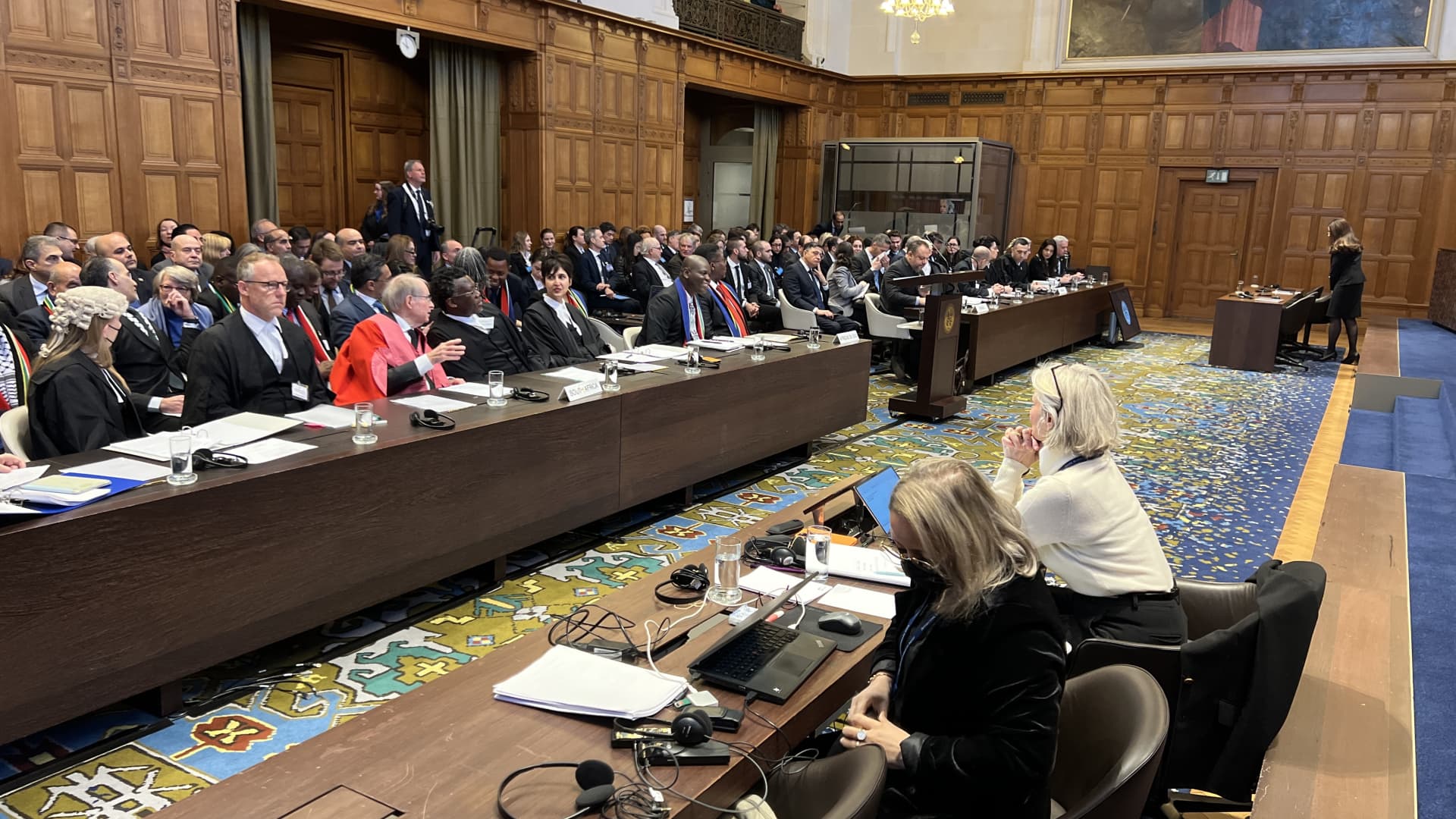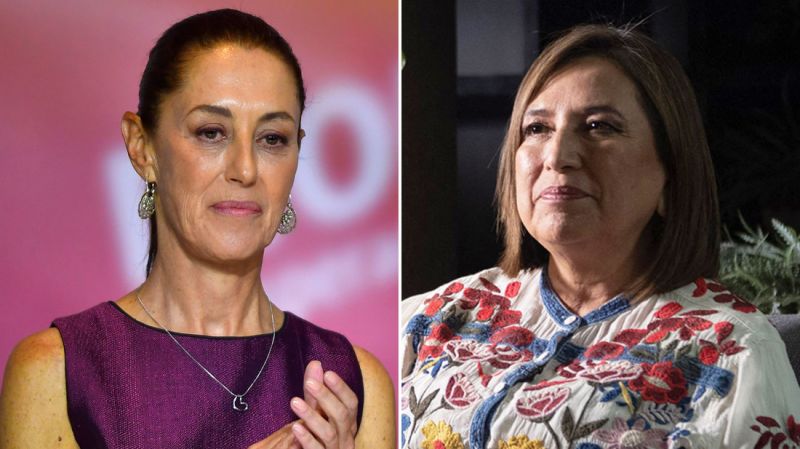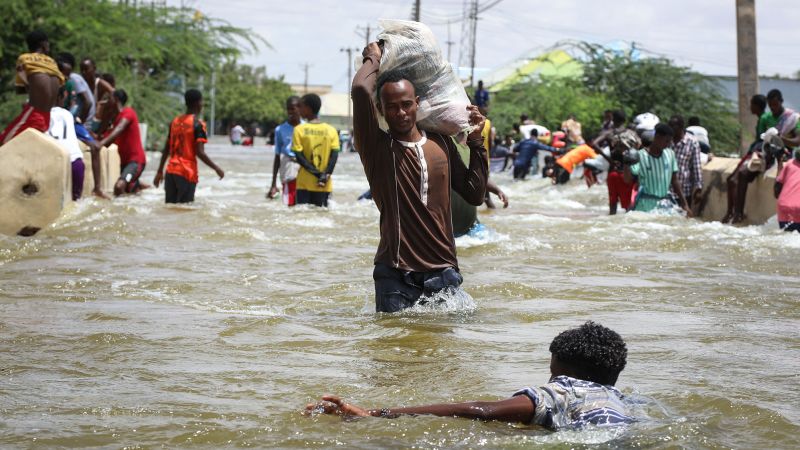South Africa presses genocide case against Israel at international court
“Nothing will stop the suffering except an order from this court,” Adila Hassim, one of the South African lawyers, said during the country’s presentation, which focused on the soaring death toll in Gaza, the catastrophic humanitarian crisis and calls by Israeli officials for the death and displacement of Palestinians.
Israel’s devastating offensive, which the Gaza Health Ministry says has killed more than 23,000 Palestinians, was launched after a brutal attack by Hamas and other militants on Israel on Oct. 7 that killed about 1,200 people and led to the capture of some 240 hostages. Israel has insisted that the war will continue until Hamas is destroyed. Global calls to halt the violence, including from Israel’s neighbors, have stalled at the United Nations.
The United States, Israel’s closest ally, has shut down demands for a cease-fire at the U.N. Security Council, arguing it would empower Hamas. The Biden administration has also dismissed South Africa’s genocide filing, calling it “meritless.”
On the eve of the hearing, Israeli Prime Minister Benjamin Netanyahu released a video message, in English, that appeared aimed at blunting South Africa’s allegations, saying that Israel “has no intention of permanently occupying Gaza” and that it was “fighting Hamas terrorists, not the Palestinian population.”
But Thursday’s landmark case thrust discussion of the Gaza war into a new international forum, one that presented Israel with new challenges, legal scholars said. While any ruling on whether Israel’s actions amounted to genocide could take years, the court could rule within weeks on “provisional measures” and could order Israel to change its conduct of the war, they said.
Mark Kersten, an assistant professor at Canada’s University of the Fraser Valley who studies the investigation and prosecution of international crimes and has written a book on international justice, said South Africa’s call for provisional measures puts the focus, for now, on prevention.
“The most important point, I think, is this duty to prevent genocide, where there is a serious risk of it happening, even when there has been no determination that genocide has occurred,” he said. “If the risk exists, then the obligation to prevent it exists.”
A 1948 convention, ratified after the Holocaust, made genocide a crime under international law and gave the ICJ the authority to determine whether states have committed it. The court’s rulings are legally binding, but can be ignored. Russia, for example, rejected a 2022 order to cease its war against Ukraine.
Outside the court Thursday, dozens of pro-Palestinian and a handful of pro-Israeli demonstrators waved flags and chanted amid tight security. Dagmar Bosma, 29, came to the court with a coalition of pro-Palestinian groups.
“It is a historical moment,” she said. “It takes an oppressed people to recognize what is happening, I think, so we are very thankful to South Africa.”
Nearby, a smaller group of pro-Israeli protesters waved the Israeli flag and held pictures of hostages held by Hamas. “I am here to support Israel,” said Judith De Jonge, 58. “I think it is a shame that South Africa started this case.”
South Africa, whose post-apartheid government has been a fierce ally of the Palestinians, initiated the legal proceedings against Israel last month. Since then, at least 13 nations have voiced support for South Africa’s case, along with the 22-member Arab League and 57-member Organization of Islamic Cooperation.
Heba Qaraeen, a 28-year-old Palestinian who was shopping in Jerusalem on Thursday, said she was skeptical that the court case would deliver any results. “Israel always acts as if it is above the law,” she said, and the world had “come too late to execute justice.” But she was grateful for what she called South Africa’s “moral support” for Palestinians.
As Thursday’s hearing got underway, a South African official quoted Nelson Mandela, the country’s anti-apartheid icon and founding president. “We are part of a humanity that is at one,” said Ronald Lamola, South Africa’s justice minister.
“This is the spirit in which we approach this court,” he said. “This is our commitment to the people of Palestine and Israelis alike.”
But the “violence and the destruction in Palestine and Israel did not begin on the 7th of Oct., 2023,” he added, highlighting a key component of South Africa’s case: that the backdrop to the current conflict was decades of “systematic oppression and violence” against Palestinians.
His delegation cited the words of senior Israeli officials as evidence of “genocidal intent” against Palestinians in Gaza. South African lawyer Tembeka Ngcukaitobi argued that Israeli officials have deliberately and systematically used dehumanizing language to normalize “genocidal rhetoric” and send a message to Israeli soldiers on the ground.
Blinne Ni Ghralaigh, an Irish lawyer on the South African team, argued that there was an “urgent” need for the court to order provisional measures to stop the violence, saying there is a risk of “irreparable” harm to Palestinians in Gaza.
“It is becoming ever clearer that huge swaths of Gaza — entire towns, villages, refugee camps — are being wiped from the map,” she said. “On average, 247 Palestinians are being killed and are at risk of being killed, each day, many of them literally blown to pieces. They include 48 mothers each day, two every hour. And over 117 children, each day,” she said.
“On current rates, which show no signs of abating, each day, over three medics, two teachers, more than one United Nations employee, and more than one journalist will be killed, many while at work, or what appear to be targeted attacks on their family homes or where they are sheltering. The risk of famine will increase each day.”
In a press release following South Africa’s presentation, Israel’s Foreign Ministry accused the country of acting as the “legal arm of the Hamas terrorist organization” and called the proceedings “the greatest show of hypocrisy in history.” South Africa has condemned Hamas’s Oct. 7 attack on Israel.
South Africa’s delegation, the statement continued, ignored “the fact that Hamas uses the civilian population in Gaza as human shields and operates from within hospitals, schools, UN shelters, mosques and churches with the intention of endangering lives in the Gaza Strip.”
Some would ask “why South Africa does not seek any court order against Hamas,” Vaughan Lowe, a British lawyer on the South African legal team, said toward the close of Thursday’s session. “Hamas is not a state and cannot be a party to the genocide convention and cannot be a party to these proceedings,” he said. Other international bodies, he said, could address atrocities committed by the militant group.
“It’s no use Israel saying that it does whatever it can to minimize the deaths of innocent men, women and children,” Lowe said. “The use of 2,000-pound bunker-busting bombs, and dumb bombs in residential areas, the relentless bombardment of Gaza, and even of so-called safe areas to which Palestinians have been directed by Israel, tell another story.”
“If any military operation — no matter how carefully it’s carried out — is carried out pursuant to an intention to destroy a people in whole or in part, it violates the genocide convention, and it must stop,” he said.
Fahim reported from Istanbul. Claire Parker in Cairo and Steve Hendrix and Sufian Taha in Jerusalem contributed to this report.







